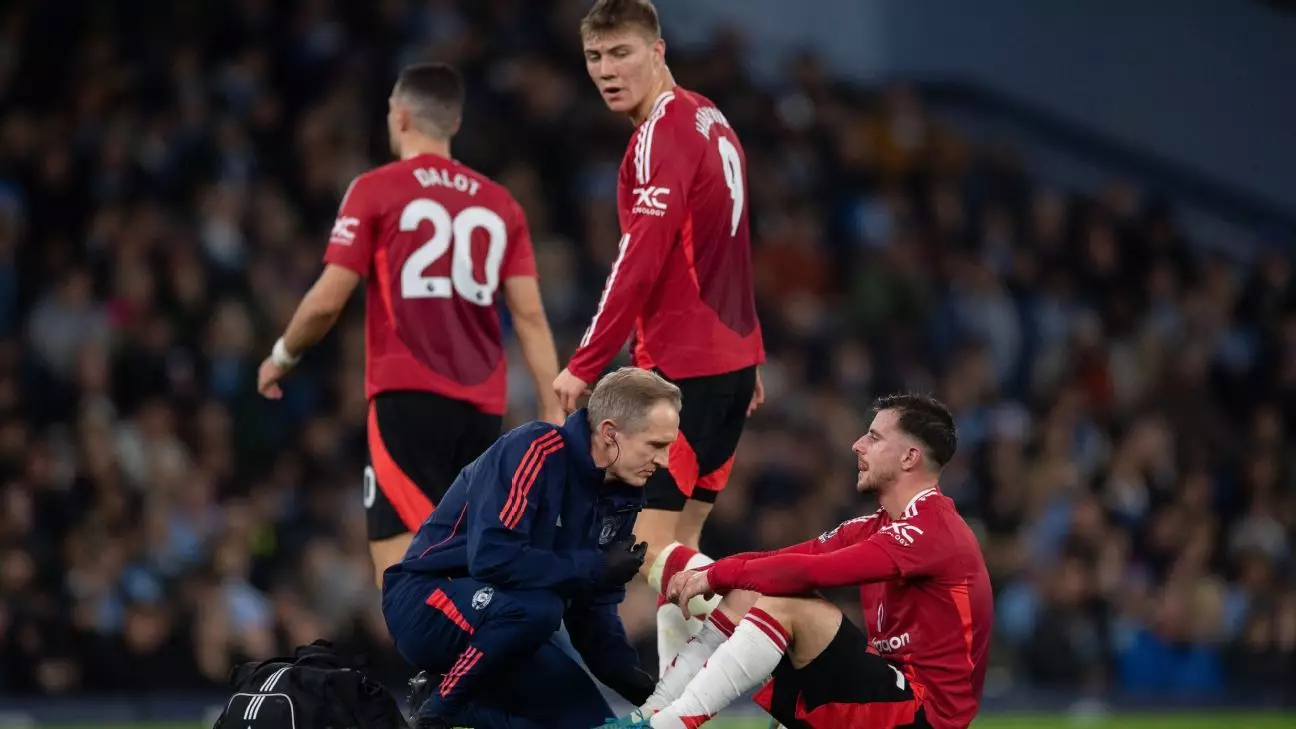In professional football, injuries often dictate the rhythm and success of a team. This truth was starkly highlighted in Manchester United’s recent victory against Manchester City, where Mason Mount was forced to exit the match just 14 minutes in due to another injury setback. The incident not only signified a disappointing moment for Mount but also raised concerns about his long-term fitness and impact on the team. According to manager Ruben Amorim, Mount is anticipated to be sidelined for several weeks following his assessment with a specialist, increasing the scrutiny on the player’s recurring injury issues.
Since joining Manchester United, Mason Mount has been plagued with fitness concerns that have curtailed his contributions to the team. In over a year and a half at Old Trafford, he has struggled to complete full matches—having only managed 90 minutes once, and never in the Premier League. This alarming statistic points to a broader issue for the club, one that questions not only Mount’s individual fitness regimes but also the support structure surrounding players who are continually facing injury setbacks.
Amorim acknowledged the challenges posed by continuous injuries during a recent press briefing, stating, “The worst part is that we don’t have the time to train like we should do after a lot of injuries.” His comments shed light on the systemic issue within the team that has left players like Mount unable to maintain consistent performance levels on the pitch.
Mount’s situation also brings attention to the psychological aspects of dealing with injuries. For an ambitious player, being out of action for extended periods can be mentally taxing. Amorim expressed his commitment to aiding Mount through this challenging phase by focusing on alternative training techniques during his recovery. “When he’s recovering, try to use that time for different things,” he remarked. This highlights the need for a supportive environment where players are not just treated for physical injuries but are also nurtured mentally during their recuperation.
The ramifications of Mount’s absence extend beyond personal concerns and infiltrate the broader team dynamic. With key players like Marcus Rashford also under scrutiny—having been excluded from recent matches—there is a clear silhouette of a squad grappling with uncertainty. Rashford’s aspirations for a “new challenge” add another layer of complexity to the narrative surrounding Mount’s injury. Amorim acknowledged that performance in training played a significant role in squad selection, indicating a potential shift in player morale and motivation.
Mason Mount’s latest injury underscores the frailty of athletes in high-stakes environments and its cascading effects on squad effectiveness. As Manchester United navigates these challenges, a careful blend of tactical training, mental support, and injury management will be imperative for sustaining both player health and overall team performance going forward. Ultimately, the question remains whether the club can provide the necessary support systems to ensure their key players can return to the field both physically and mentally prepared.

